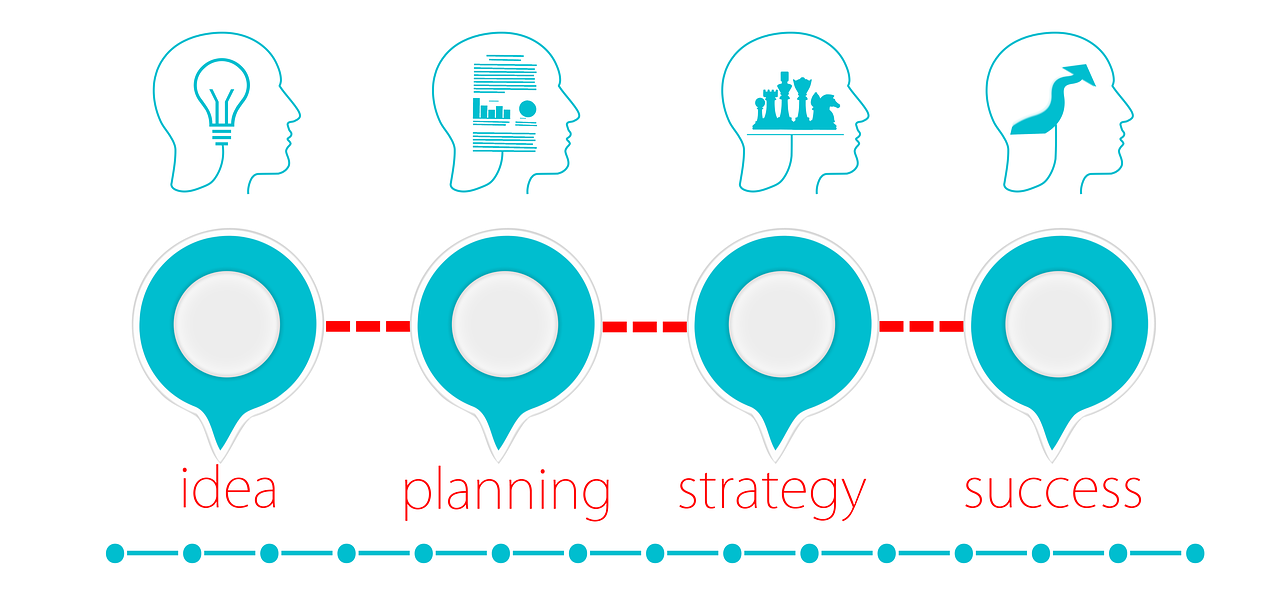Difference between a Manager and a Leader
Leadership v/s Management: Understanding the Distinctions
Additional Reading
What is Product Management?
What is Program Management?
What is Project Management?
The career path of a Project Manager
The career path of a Product Manager
Best Practices of Program Management – 15 Best Practices of Program Management
Introduction
In this article, we will look at the difference between a Manager and a Leader. What strengths, qualities, knowledge, skill-set, and mannerisms should each one possess? What are the career paths for each individual and can they change their paths at any point of time in their career?
We will look at both a “Manager” and a “Leader” from the perspective of an Information & Technology company. However, our definition of “Manager” and “Leader” can be applied to any field such as financial, banking, construction, industrial, or any other company where these roles can be applied.
First, let’s define what is a Manager and a Leader.
Who is a Manager?
A Manager is a professional who is responsible for overseeing a team or a department within the organization. In a technology company, a manager may be responsible for overseeing the work of software developers, engineers, data scientists, project managers, or other technology professionals. They typically have a broad range of responsibilities, including setting goals and objectives, managing budgets, and developing strategies to achieve organizational objectives. This individual typically has a background in technology and possesses strong leadership skills.
They may also work closely with other departments within the organization, such as marketing, sales, and customer support, to ensure that technology solutions are aligned with business objectives and meet the needs of customers. They also oversee the hiring and training of new employees and provide ongoing guidance and support to their team members.
In addition to technical expertise, a Technology Manager should possess strong leadership, communication, and organizational skills. They should be able to motivate and inspire team members, resolve conflicts, and make decisions that benefit the organization as a whole. Overall, a successful technology manager plays a critical role in ensuring that the company’s technology functions smoothly and effectively. They must also be adept at problem-solving and decision-making to manage potential risks and ensure that their team’s work meets the highest standards of quality.
Who is a Leader?
A leader is someone responsible for guiding and directing the company towards achieving its vision, mission, and goals. A leader in a technology company should have a deep understanding of the industry and its trends, as well as the products, services, and solutions offered by the company. This individual must have a deep understanding of the technology industry, the company’s products and services, as well as its customers, stakeholders, and competition. This person typically has a strong technical background and possesses exceptional leadership skills to inspire, motivate, and guide their team towards success.
They should be able to communicate effectively with stakeholders and make strategic decisions that align with the company’s mission and values. In addition to overseeing the technical aspects of the company, a technology leader is also responsible for building and maintaining a positive and productive work culture, promoting innovation, encouraging employee growth and development, and ensuring that the company’s technological initiatives align with its overall business objectives.
In addition to technical and strategic skills, a leader in a technology company should also possess strong interpersonal skills to build and maintain relationships with employees, customers, and partners. They should be able to lead by example, cultivate a positive company culture, and empower their team to innovate and achieve excellence in their work. A leader should be able to adapt to changing market conditions and technological advancements and be capable of making tough decisions in the face of uncertainty. Overall, a successful technology leader is someone who can balance technical expertise with strong leadership qualities to drive innovation, growth, and success within their organization. A leader in a technology company must have a passion for innovation and a commitment to developing new products and services that meet the evolving needs of their customers.
Difference between a Manager and a Leader
Focus
Managers
A Manager is responsible for organizing, directing, and controlling resources and personnel to achieve specific goals. In a technology company, a manager’s primary duties include setting objectives, delegating tasks, monitoring progress, providing feedback, and ensuring the smooth functioning of operations. Managers are also responsible for managing budgets, timelines, and resources, and for making decisions that impact the company’s overall performance. Managers tend to focus on optimizing existing processes, ensuring efficiency, and meeting specific targets. They rely on their authority and position to enforce policies and procedures, and they prioritize stability and predictability.
A Manager is someone who is responsible for overseeing a team of employees and ensuring that they meet their daily responsibilities. They are typically focused on maintaining order and efficiency, ensuring that tasks are completed on time and within budget, and providing guidance and support to their team members. A Manager is often evaluated on their ability to deliver results, and their success is measured by the performance of their team.
Managers tend to be more focused on completing specific tasks and achieving goals. They may be less concerned with building relationships with their team members and more concerned with making sure that everyone is doing their job correctly.
Leaders
A Leader is responsible for inspiring and guiding people towards a shared vision. In a technology company, a leader’s primary duties include setting a strategic direction, inspiring and motivating employees, promoting innovation and creativity, and creating a culture of continuous learning and improvement. Leaders are also responsible for building relationships with stakeholders, customers, and partners, and for making decisions that impact the company’s long-term success.
A Leader is responsible for setting the overall vision and direction for the company. They are focused on the long-term success of the organization and are responsible for inspiring and motivating their team to work towards this shared goal. Leaders are typically highly skilled communicators and are able to inspire others to take action. They are also highly strategic thinkers, and possess good technical knowledge, as they need to be able to anticipate future trends and market shifts and adjust their strategy accordingly.
Leaders are typically focused on developing a vision for the organization and creating a strategy for achieving that vision. A leader is often evaluated on their ability to inspire and motivate their team, and their success is measured by the overall success of the organization. They are often more focused on the big picture and long-term strategy of a company. They are creative and innovative, always looking for new ways to solve problems and move the company forward.
Approach
Managers
Managers tend to focus on optimizing existing processes, ensuring efficiency, and meeting specific targets. They rely on their authority and position to enforce policies and procedures, and they prioritize stability and predictability. In Technology organizations, Managers are typically responsible for overseeing the development and delivery of software products. They work closely with developers, designers, and quality assurance professionals to ensure that projects are completed on time and within budget. They are also responsible for identifying areas where the development process can be improved and implementing changes to streamline workflows and improve overall efficiency.
Managers are typically focused on achieving short-term goals and making sure that their team meets their objectives. Managers are expected to be highly organized and detail-oriented, as they need to be able to track progress and identify areas where improvements can be made. They also need to be able to communicate effectively with their team, as well as with other managers and executives within the company.
Leaders
Leaders, tend to focus on creating a vision and inspiring people to work towards it. They rely on their ability to communicate, persuade, and motivate, and they prioritize adaptability, innovation, and agility. Leaders are also more likely to take risks and embrace change, as they understand that technology is constantly evolving and that staying ahead requires constant experimentation and learning. A Leader may be responsible for setting the company’s strategic direction, identifying new market opportunities, and creating a culture of innovation and experimentation. They are typically focused on creating a sense of purpose and meaning for their team members and inspiring them to go above and beyond in pursuit of the company’s goals.
Leaders are typically more focused on the big picture. They are responsible for setting the strategic direction of the company, and for inspiring and motivating their team to achieve that vision. They are often very good communicators and are able to articulate their vision in a way that inspires others to follow them.
Success
Managers
Managers tend to build teams based on job functions and roles, and they expect employees to follow a predefined set of rules and procedures. Typically in an organization, a Manager is often evaluated on their ability to deliver results, and their success is measured by the performance of their team. They ensure that their team members have the resources they need to complete their tasks, and that everyone is working together effectively. They also monitor progress and identify any issues that may arise, and work to resolve them in a timely manner.
Managers are responsible for ensuring that projects are completed on time and within budget. They tend to be more reactive, responding to problems as they arise. They are often focused on putting out fires and making sure that everything is running smoothly.
Leaders
Leaders, measure their success, by creating a vision and inspiring people to work towards it. They rely on their ability to communicate, persuade, and motivate, and they prioritize adaptability, innovation, and agility. Leaders are also more likely to take risks and embrace change, as they understand that technology is constantly evolving and that staying ahead requires constant experimentation and learning. A Leader may be responsible for setting the company’s strategic direction, identifying new market opportunities, and creating a culture of innovation and experimentation. They are typically focused on creating a sense of purpose and meaning for their team members, and inspiring them to go above and beyond in pursuit of the company’s goals.
Leaders are responsible for driving innovation and ensuring that the company stays ahead of its competitors. They are more focused on building relationships with their team members and inspiring them to do their best work. They understand that the success of the company is dependent on the success of its people. A Leader is often evaluated on their ability to inspire and motivate their team, and their success is measured by the overall success of the organization.
Skillset
Managers
Managers in technology companies require a unique set of skills that blend both technical and managerial expertise. Some essential skillsets for managers in technology companies are:
- Technical knowledge: Managers in technology companies must have a deep understanding of the technologies used by the company, as well as the latest trends in the industry.
- Leadership skills: A manager should be able to guide, motivate and inspire their team to achieve their goals.
- Project management skills: A manager should have the ability to manage multiple projects, set deadlines, and coordinate with different teams.
- Communication skills: A manager must be able to communicate effectively with different stakeholders, including the technical team, executives, and customers.
- Analytical skills: A manager should be able to analyze complex data sets, identify patterns, and use data to make informed decisions.
- Strategic thinking: A manager should be able to develop long-term strategies and plans for the company, and to adjust them as the market and industry change.
- Business acumen: A manager should have a deep understanding of the company’s business goals and how to achieve them.
- Team management: A manager should be able to hire, train, and manage a team effectively, including setting clear expectations, providing feedback, and coaching team members.
Leaders
Leaders in technology companies require a wide range of skills, including technical expertise, strategic thinking, communication, and people management. Here are some of the key skillsets a leader in a technology company should possess:
- Technical knowledge: A leader in a technology company should have a deep understanding of the industry and the products/services their company provides. This knowledge will enable them to make informed decisions and provide guidance to their team.
- Strategic thinking: A leader in a technology company must be able to think strategically and develop a clear vision for the company’s future. They should be able to anticipate market trends and adjust their strategy accordingly.
- Communication skills: A leader in a technology company must be an effective communicator. They should be able to communicate their vision to their team and stakeholders clearly and concisely. They should also be able to listen to feedback and respond appropriately.
- Team building: A leader in a technology company should be able to build and lead a high-performing team. This requires skills in recruiting, hiring, training, and developing employees.
- Adaptability: A leader in a technology company must be able to adapt to new technologies and changes in the market. They should be able to identify opportunities and take advantage of them quickly.
- Problem-solving skills: A leader in a technology company must be able to identify and solve problems quickly. They should be able to think critically and develop creative solutions to complex problems.
- Business acumen: A leader in a technology company must have a good understanding of the business side of the industry. They should be able to manage budgets, create financial projections, and make data-driven decisions.
- Leadership skills: Finally, a leader in a technology company must be able to inspire and motivate their team. They should lead by example, be decisive, and create a culture of innovation and excellence.
Conclusion
While Managers and Leaders have different roles and responsibilities, it’s important to note that they are not mutually exclusive. In fact, many successful managers are also effective leaders, and vice versa. However, it’s important for companies to recognize the unique skills and abilities that each role requires, and to ensure that they have the right people in each position.
A good manager is essential for keeping projects on track and ensuring that work is completed efficiently and effectively, while a good leader is essential for inspiring and motivating team members to do their best work and driving the long-term success of the company.
In conclusion, both managers and leaders are essential in a technology company. While Managers are focused on achieving short-term goals and ensuring that projects are completed on time and within budget, Leaders are responsible for setting the overall direction for the company and inspiring their team to work towards a shared vision. Understanding the differences between these two roles can help you determine which one you are best suited for or which one you need to hire for your organization.



Comments are closed.